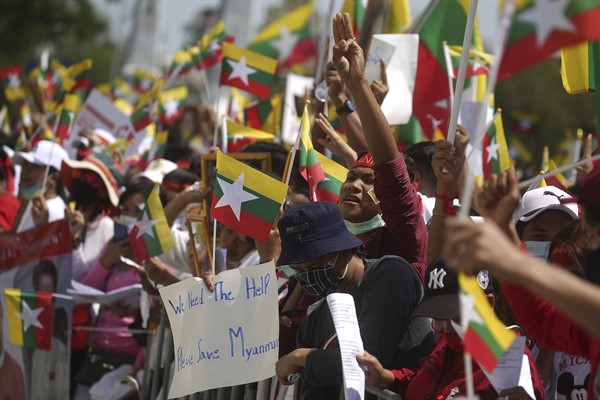In the run-up to this year’s high-level meetings of the United Nations General Assembly, there were almost too many issues to address: a global pandemic, climate change, renewed and continuing conflicts and great power competition, to name a few. But when it came to the crisis in Myanmar, attention focused on a single question: Who should represent the country in New York?
The answer would determine how much the international community can do to help Myanmar, a country now teetering on the edge of civil war, in the months ahead. The turmoil began on Feb. 1, when Myanmar’s military, known as the Tatmadaw, staged a coup against the democratically elected government led by Aung San Suu Kyi. Since then, the new military junta has struggled to control Myanmar’s territory even as it violently represses a strengthening anti-coup resistance movement.
Opponents of the junta have consistently appealed to the international community for help, and initially, they were heard. Just days after the coup, the U.N. Security Council passed a resolution condemning it, while a slew of countries imposed sanctions on the Tatmadaw’s leaders and its assets. By summer, the main regional bloc, the Association for Southeast Asian Nations, had approved a five-point plan of action to address the situation, and the U.N. General Assembly had called on members to impose an arms embargo.

